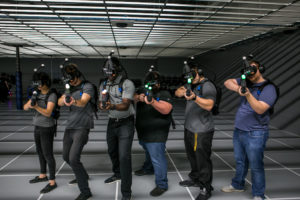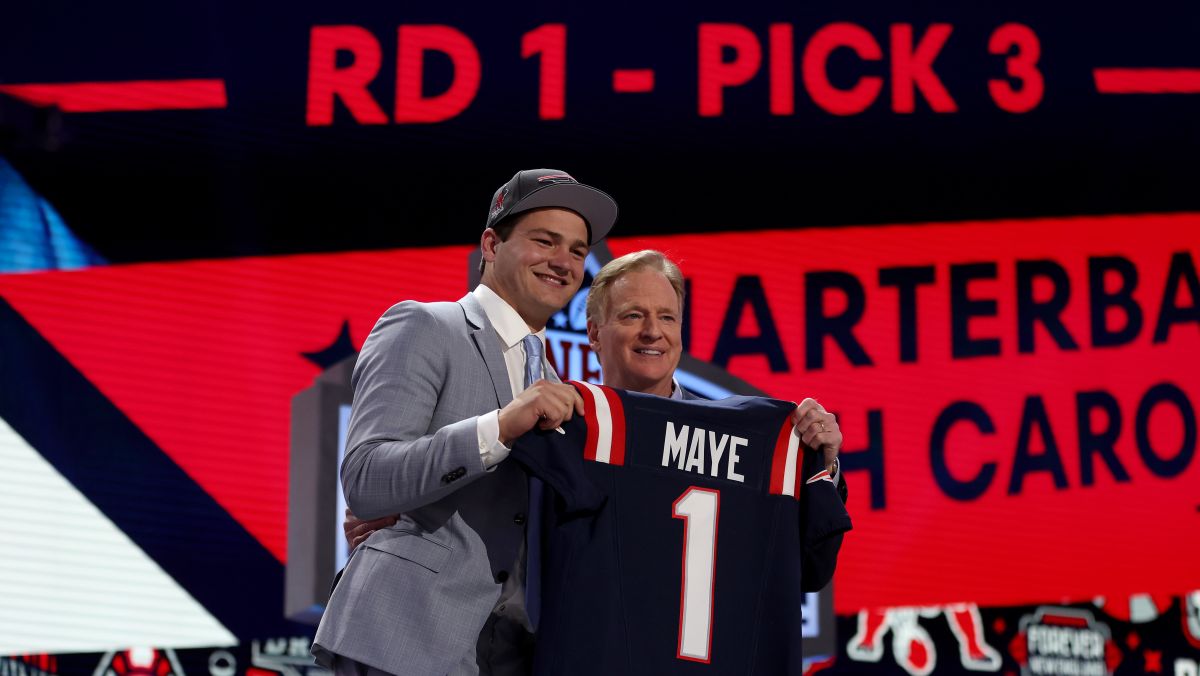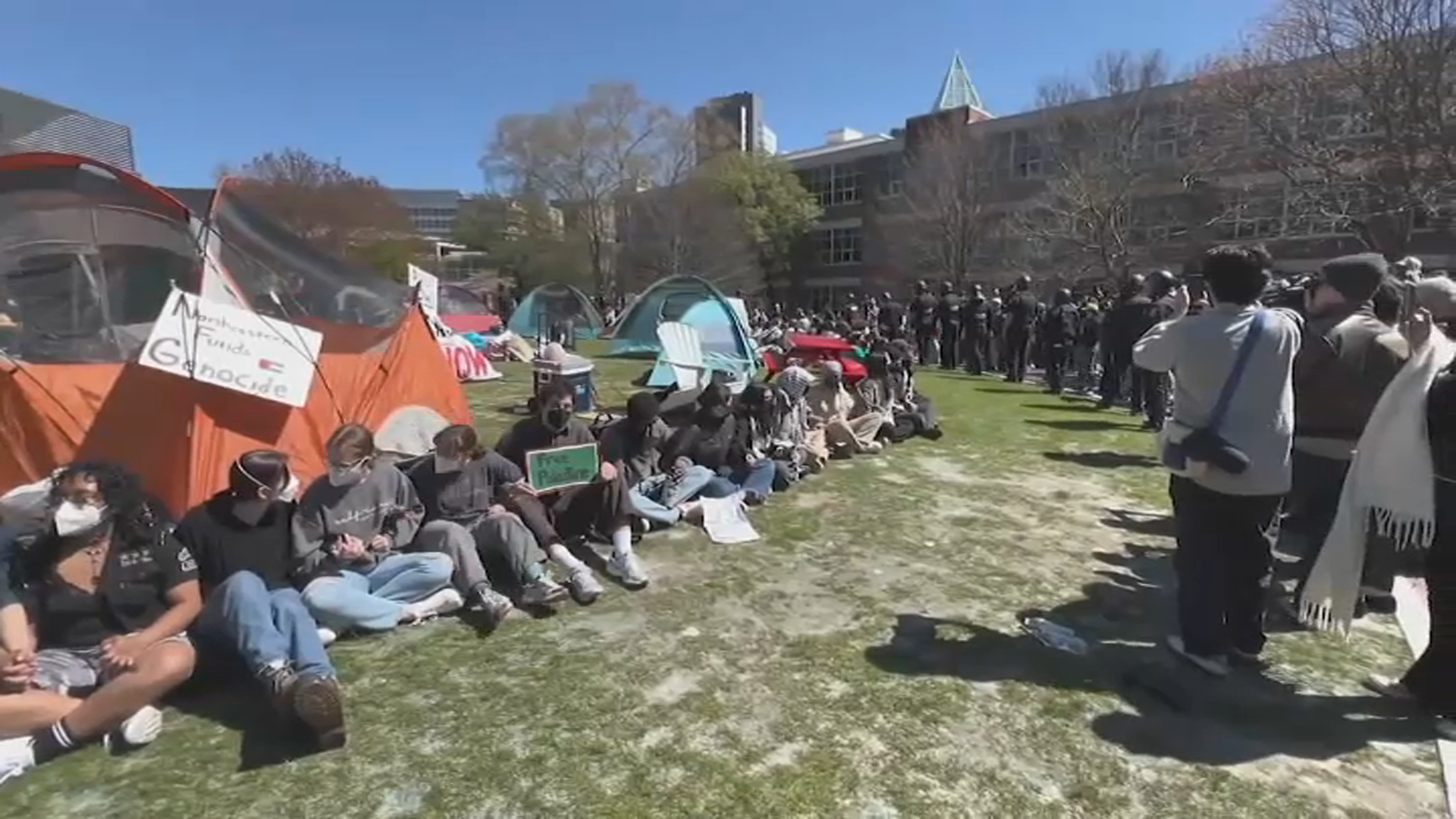
Depending on who you talk to, virtual reality is either a one-off fad for the curious, or the future of everything from social gaming to training elite military squads for real-life life-and-death scenarios.
But now with Mindtrek VR, the new 4,000 square foot warehouse of multiplayer shoot-em-up zombie-killing fun-time zone in Woburn (slated to open to the public as early as Sept 1), it is something else entirely.
“Nobody’s done more than [four players at once] successfully,” said Bob Cooney, Head of Global Business Development for Zero Latency, in an email to BostInno. “[Mindtrek VR] can have up to eight people playing in the same game, where each player’s avatar is clearly labeled so you know who you are playing with, and what they are doing. It makes the game extremely social.”
It’s also unique, due to the size and scale of the project, which uses proprietary technology from Zero Latency out of Melbourne, Australia. After Mindtrek VR co-founder David O’Connor tried it with his business partners, O’Connor previously told BostInno he obtained exclusive licensing rights for using the technology in Massachusetts.
Also fueling the social and immersive high points of the experience is the freedom of motion. After being walked through the gear tutorial, players suit up and enter the arena unburdened by tethered cables or hardware anchoring them to any fixed location thanks to a full body-pack computer and head unit for external sensory deprivation and full visual and audio immersion. The playing floor uses over 100 cameras to capture real-time data of players movements for seamless display. And yes, you get a big damn gun to carry around.
Local
In-depth news coverage of the Greater Boston Area.
“Part of the ability to have more players, beyond a proprietary tracking system which allows for twice the cameras as the competition for less cost, is the size of the arena’s we build and the scale of the virtual environments,” Cooney said. So far they’re running with three scenarios for players (including one O’Connor has likened “to a 3K version of Tetris”) but the go-to is the zombie warehouse fight, which gets more intense the more teammates you have on your side. Especially when getting surprised by a 300-lb undead monster laying haymakers on your face.
“The comfort of the experience – both in tracking quality and equipment design – allows for longer games. This combination of length of time in the virtual world, and distance traveled dramatically increases the immersion factor.” A point that’s underscored while you’re in-game and riding up a virtual elevator for sniper positioning, but have to adjust to the simulated motion of moving vertically with shifting vantage point while physically going nowhere. Which isn’t to say you don’t work up a sweat while taking out hordes of the walking dead. “In some of our games, our players roam as much as a third of a mile,” says Cooney.
Games run around 45 minutes, at $45 a session, with nearly all of it spent geared up and fully submerged in the virtual world being monitored by game runners at a command station outside the grid boundaries for game play. And it’s that dedication to full untethered immersion that could prove integral to the longevity of Mindtrek’s appeal. If the immersion experience is broken for any reason then the entire virtual experience becomes, as Cooney puts it, “devalued”. So if the entire team’s confidence about the business potential based on their technology centers on that experience, it explains why the company is already looking to the future.

At present there’s a location in Marlborough slated for a November opening, with New Jersey and Philadelphia outposts potentially opening down the road. And Cooney predicts as the technology advances and becomes more robust, it will allow arenas spread remotely across different geographical locales to be digitally linked in real time.
“Site vs site play is likely in the future,” he said.




